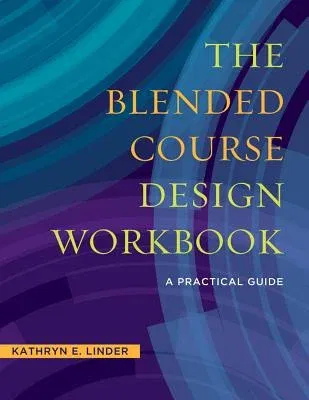Blended (also called hybrid) classrooms, in which face-to-face
interaction is intentionally combined with online activities to aid
student learning, are becoming more and more common. Most recently,
"flipped" classrooms have become a popular method for teaching because
more time for active learning in-class can be gained by moving content
delivery such as lecture to outside-of-class homework using technology
tools such as video or lecture capture. The blended model is proving to
be an environment that provides more self-directed, technology-mediated
learning experiences for students who will be incorporating technology
more and more into their professional lives post-college.
The Blended Course Design Workbook meets the need for a user-friendly
resource that provides faculty members and administrators with
instructions, activities, tools, templates, and deadlines to guide them
through the process of revising their traditional face-to-face course
into a blended format.
Providing a step-by-step course design process that emphasizes active
learning and student engagement, this book will help instructors adapt
traditional face-to-face courses to a blended environment by guiding
them through the development of course goals and learning objectives,
assignments, assessments, and student support mechanisms with technology
integration in mind. It will also help instructors choose the right
technologies based on an instructor's comfort level with technology and
their specific pedagogical needs. The book will help each instructor who
uses the text to develop a unique course by making choices about their
course design based on student learning needs for their chosen topic and
discipline. Every component of the workbook has been piloted with
faculty designing and implementing blended courses and then revised to
better meet the needs of faculty across a range of comfort levels with
technology use.
The Blended Course Design Workbook includes detailed instructions for
each stage of course design alongside specific activities that the
reader can complete. The book is unique because it facilitates a
step-by-step process for blended course design with specific templates
and tools that can be used across disciplines.
Additional resources and handouts are posted on the book page as well as
the author website, www.bcdworkbook.com.

